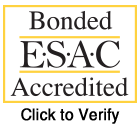Aspen Highlights & Updates
 Aspen’s Annual Extravaganza – Our team had a fantastic time in late February at the 2025 Annual Aspen Extravaganza in St. Pete Beach, FL! The time together was incredibly valuable, and we’re so appreciative of our exceptional partners.
Aspen’s Annual Extravaganza – Our team had a fantastic time in late February at the 2025 Annual Aspen Extravaganza in St. Pete Beach, FL! The time together was incredibly valuable, and we’re so appreciative of our exceptional partners.
2024 Wrapped – 2024 was a year of incredible progress at Aspen HR! We processed 168,625 checks, nearly $800M in payroll, and saw 28.4% revenue growth. We’re also proud of our team’s expansion, with 22 new corporate hires. View our 2024 Wrapped data here.
Sponsoring Key Industry Events – This March, Aspen HR sponsored two key events: iGlobal Forum‘s 18th Independent Sponsors Summit and the Texas ACG Capital Connection. We had a great time connecting with independent sponsors and private equity industry leaders and strengthening our relationships!
New Aspenites
Join us in welcoming several new Aspenites to our team!
- Serge Saint-Preux, Senior Staff Accountant
- Natasha Spear, Senior Tax Specialist
- David Leeds, Senior Business Consultant
HR and Legal Alerts!
Ohio Pay Stub Protection Act – Effective April 9, 2025, Ohio’s Pay Stub Protection Act (Ohio Revised Code Section 4113.14) requires employers to provide each employee with a written or electronic pay statement on regular paydays. The statement must include:
- The employee’s name;
- The employee’s address;
- The employer’s name;
- The total gross wages earned by the employee during the pay period;
- The total net wages paid to the employee for the pay period;
- A listing of the amount and purpose of each addition to or deduction from the wages paid to the employee during the pay period;
- The date the employee was paid and the pay period covered by that payment; and
- For an employee who is paid on an hourly basis, all of the following information:
- The total number of hours the employee worked in that pay period;
- The hourly wage rate at which the employee was paid; and
- The employee’s hours worked in excess of 40 hours in one workweek.
We will ensure that your pay stubs meet all compliance requirements under this new law. Our team will review and update payroll practices as necessary to align with the mandated standards.
NY Non-Compete Bill – On February 10, 2025, New York State Senator Sean Ryan introduced Senate Bill S4641, aiming to prohibit nearly all employment-related non-compete agreements, with specific exceptions for highly compensated individuals and certain healthcare professionals. The current proposal defines a “non-compete agreement” as any arrangement that restricts a covered individual from obtaining employment after their tenure with an employer. A “covered individual” refers to anyone, excluding highly compensated individuals (those earning $500,000 or more annually), who performs work under conditions of economic dependence. The bill explicitly bans employers from requiring or enforcing such agreements with covered individuals, rendering any such agreements “null, void, and unenforceable.” Notably, the bill allows for certain restrictive covenants, such as agreements establishing a fixed term of service or those protecting trade secrets, provided they do not otherwise restrict competition. If enacted, the law would take effect 30 days after signing and apply to contracts entered into or modified on or after that date, without retroactive impact on existing agreements.
CA Pay Data Reporting Opens – The California Civil Rights Department (CRD) has opened its pay data reporting platform for the 2024 reporting year, with submissions due by May 14, 2025. As a reminder, private employers with 100 or more employees with at least one California employee (including labor contractor-hired employees) must submit detailed workforce pay data to remain in compliance.
To ensure you meet the reporting requirements, we will assist with pulling the necessary data to support your filing. Your dedicated HR representative will reach out to you soon to discuss the next steps and gather any additional information needed.
NLRB Acting General Counsel Rescinds all former GC’s Guidance – On February 14, 2025, the National Labor Relations Board (“NLRB”) Acting General Counsel William B. Cowen issued Memorandum GC 25-05, rescinding several policy directives from his predecessor. This shift signals changes in labor policy under the current administration.
Key rescissions include:
- Non-Compete Agreements: The previous stance that non-compete clauses violate the National Labor Relations Act (NLRA) has been withdrawn, potentially allowing broader use of such agreements.
- Remedial Approaches: Policies advocating for expansive remedies in unfair labor practice cases have been rolled back, possibly limiting the scope of relief available to affected employees.
- Electronic Monitoring: Prior guidance on the implications of electronic monitoring and algorithmic management on employee rights has been rescinded, affecting employer obligations in this area.
New York Severance Agreement Proposed Changes – On March 4, 2025, the New York State Senate passed the No Severance Ultimatums Act, which aims to enhance protections for employees entering into severance agreements. The bill is now under consideration by the Assembly.
Key provisions include:
- Review Period: Employers must provide employees with at least 21 business days to review a severance agreement before signing, which is longer than the 21-calendar day period under existing laws.
- Revocation Period: After signing, employees have seven calendar days to revoke the agreement. The agreement becomes effective only after this revocation period expires.
- Right to Counsel: Employers are required to inform employees of their right to consult an attorney regarding the severance agreement.
If enacted, the law would take effect immediately, necessitating prompt compliance to avoid agreements being deemed void and unenforceable.
ICE Audits – Historically, ICE conducted 5,981 Form I-9 audits in Fiscal Year 2018 and 6,450 in 2019. The current administration aims to increase these numbers significantly, targeting between 12,000 to 15,000 audits annually, along with over 100 formal raids per year.
Since late January 2025, ICE has been issuing Notices of Inspection (NOIs) and subpoenas, requiring employers to submit I-9 forms and supporting documentation for current and recent employees within a minimum of three business days. Subsequent reviews may result in Notices of Suspect Documents, identifying employees whose work authorization is in question. Employers are advised to ensure compliance with I-9 documentation requirements to mitigate potential liabilities.
Employers should remain vigilant and proactive in maintaining compliance with federal immigration laws, given the heightened enforcement environment. To support your compliance efforts, we offer: I-9 Training through our LMS for HR and managers to ensure accurate completion and retention; and I-9 Audits & Reviews to identify and correct potential errors before an inspection.
Michigan Earned Sick Time Act Updates – Effective February 21, 2025, Michigan’s Earned Sick Time Act (ESTA) has been updated to expand paid sick leave requirements for employers.
- Accrual and Usage: Employees accrue one hour of paid sick leave for every 30 hours worked, with a cap of 72 hours annually (40 hours for small businesses with 10 or fewer employees).
- Waiting Period: New employees may be required to wait up to 120 days before using accrued sick leave.
- Carryover Cap: Employers can limit carryover of unused sick time to 72 hours annually (40 hours for small businesses).
- Frontloading Option: Employers may frontload 72 hours (or 40 hours for small businesses) at the start of the benefit year, eliminating accrual tracking.
- Pro-Rating for Part-Time Employees: Employers may prorate frontloaded sick leave for part-time employees based on expected hours worked.
- PTO Policies: Existing PTO policies can satisfy ESTA requirements if they provide the required leave for ESTA-covered reasons.
Notice Requirement: Now because of the late amendment, employers have until March 23 to provide employees with notice of all of the following:
- the amount of sick time that must be provided to an employee under ESTA;
- the employer’s chosen benefit year (for example, anniversary, calendar, fiscal, etc.);
- the terms under which earned sick time may be used;
- that retaliation against eligible employees is prohibited for requesting or using earned sick time; and
- the employee’s right to file a complaint with LEO for any violation of ESTA.
Have questions? Don’t hesitate to contact our team.






